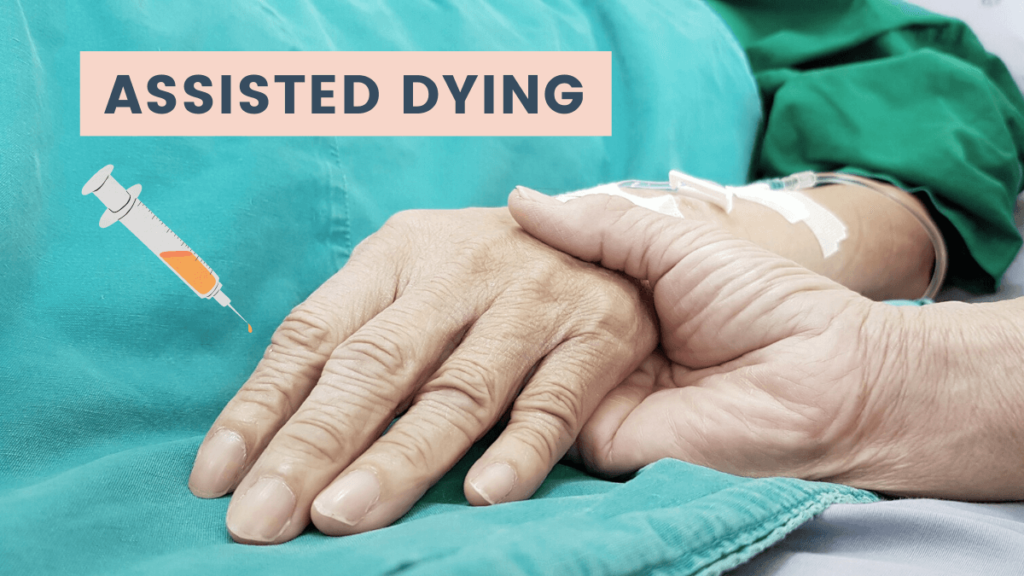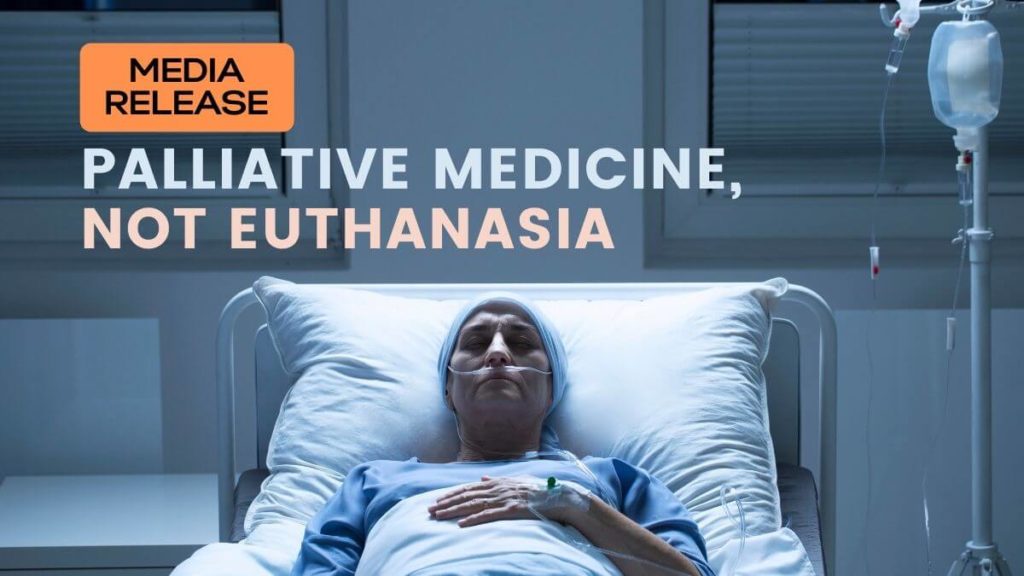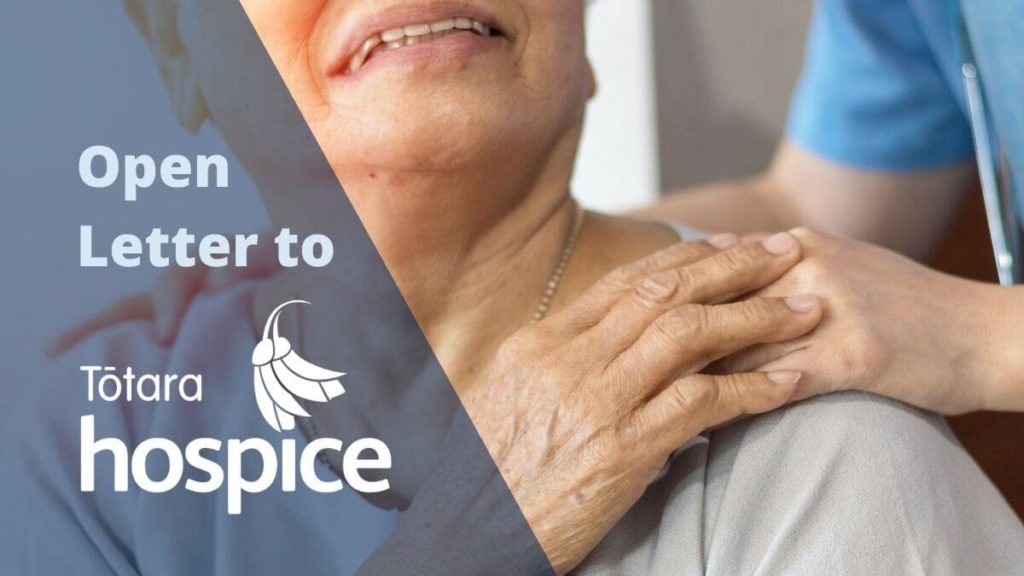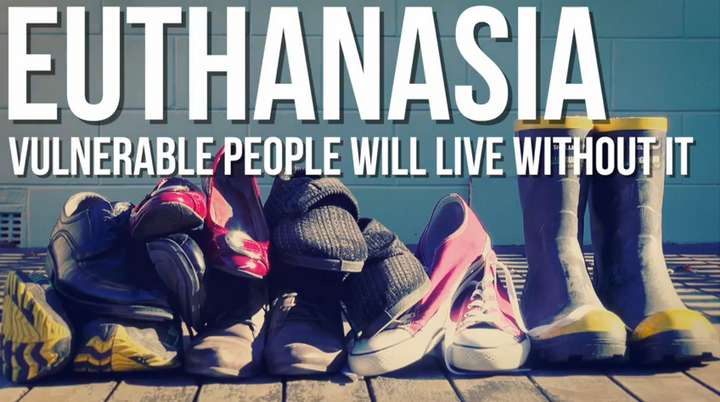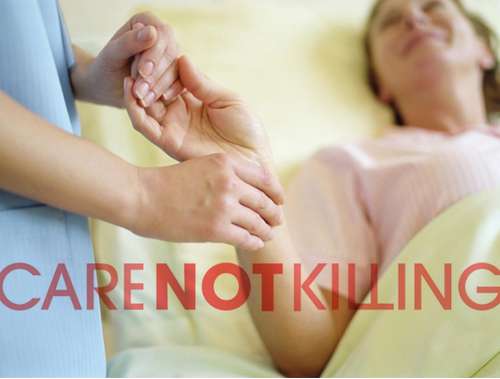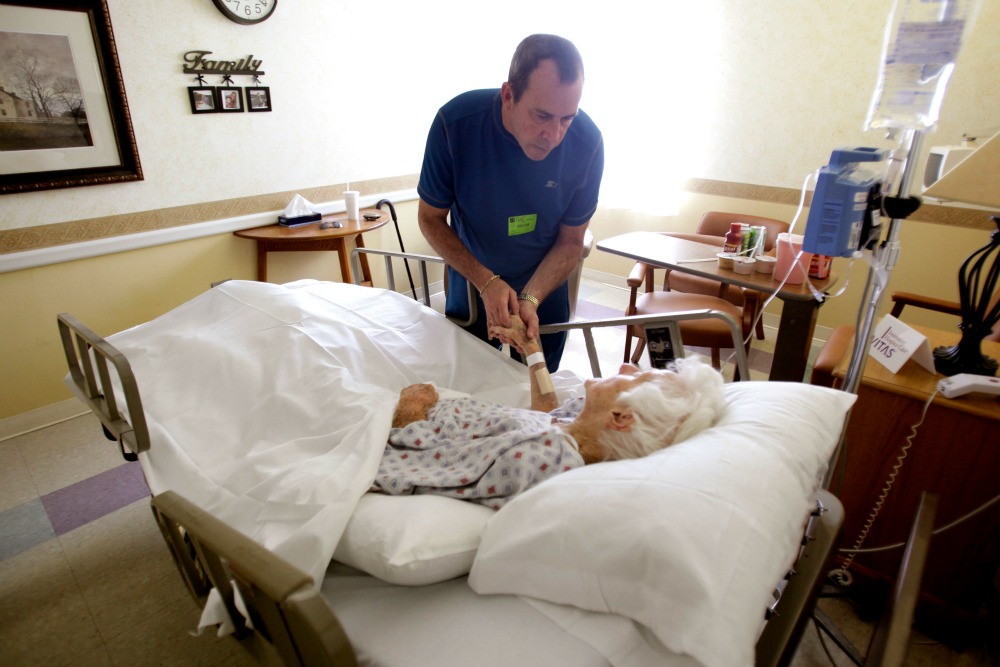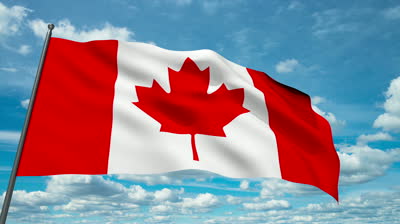OPEN LETTER
To: Totara Hospice re End of Life Choice Act
We are writing to express our concern that you will be one of the only hospices in New Zealand offering euthanasia and assisted suicide under the new law to come into force on Sunday 7 November. As a loved and trusted service which has served the South Auckland community for 40 years, we respectfully ask that you reconsider your decision in light of the following key points.
We already have “choice”.
A person may already refuse medical treatment.
- turning off life support
- ‘do not resuscitate’ (no CPR) requests
- stopping of treatment or food
Those things are legal. And they’re not euthanasia.
Most people simply want to ensure that the administration of pain relief and the withdrawal of burdensome treatment are not treated as illegal. Allowing the natural process to take place with appropriate palliative care including pain management is completely different to intentionally bringing about the patient’s death.
Mistakes could be made
Some people will request assisted suicide or euthanasia on account of a diagnosis/prognosis. But as you are aware, there can be no absolute certainty around that. The new law relies on a diagnosis that a person suffers from a terminal illness which is “likely” to end his or her life within six months.
How will you measure “likely”? And can you guarantee that you will be right each and every time. Patients will be relying on that assurance.
Coercion is a significant issue.
Many will request assisted suicide because of coercion either internally or from relatives, or concerns around costs of treatment. Others will be struggling and possibly even be depressed.
The new law is seriously deficient in so far that it only requires doctors to “do their best” to ensure that the person is free from pressure – an extremely low legal threshold. Moreover, it fails to outline any process for ensuring patients are free from coercion. Can you guarantee that every patient who is euthanised will be completely free of coercion.
As the NZ Medical Association told the Select Committee considering the new law: “The provisions in the Bill will not ensure that a decision to seek assisted dying will always be made freely and without subtle coercion.”
In Oregon, Washington state and Canada which already allow euthanasia, the statistics show that the feeling of being a burden is one of the key reasons that terminal patients requested euthanasia.
Also of concern is that elder abuse is already a significant problem in New Zealand. About 80% of it remains hidden and unreported. We cannot ignore the possibility that dependent elderly people may be coerced into assisted suicide in their final weeks and months. That feeling of being a burden on loved ones, and the knowledge of that expensive rest home and geriatric care and medical bills, are all subtle forms of coercion pushing an already vulnerable person towards a quick cheap solution.
Cost may drive decisions
The new law only provides a ‘right’ to one choice – premature death. There is no corresponding right to palliative care. But as you are well aware, good palliative care and hospice services are resource intensive & can be expensive; euthanasia would be cheaper. This law change could introduce a new element of ‘financial calculation’ into decisions about end-of-life care for families and for vulnerable patients.
Our specific law is a flawed and dangerous one
Even a cautious approach from Totara Hospice will not offer complete reassurance to vulnerable patients. These are the specific concerns in the operation of the law:
- unlike other jurisdictions, no independent witnesses are required at any stage of the process, including at the death
- the person’s mental competence doesn’t have to be assessed at the time the lethal dose is administered. Can you guarantee that you will know their intention at the time that they are at their most vulnerable?
- There is no mandatory cooling-off period or ‘thinking time’ – unlike overseas where there are specific cooling off periods of 9 days and up to 15 days.
- There is no requirement for an existing doctor / patient relationship. As we now know, there are very few medical professionals who want to be part of this process. Patients will ‘shop around’ for the doctor that gives you the answer a patient wants – but who doesn’t know their background – or more importantly, the family dynamics and whether there is obvious coercion going on – which a family doctor will have knowledge of.
- Once of the worst provisions is that the patient can block family members from being aware of their decision to have euthanasia. There is no requirement that the person discuss their request for assisted suicide with any other person. This is a serious flaw in the Act. But family members may be fully aware of why the request is being made – and may have alternative solutions that don’t involve killing the patient. Are you concerned that you may euthanise patients without any family involvement or support?
How many mistakes?
One of the arguments used for not having the death penalty in NZ was – what if we get one wrong. It was that fear of a mistake that was a good justification for not having the death penalty in law.
How many euthanasia mistakes are we willing to accept? How many euthanasia mistakes are you willing to accept?
Why not?
The most concerning aspect is that “legalised” means normalised.
Euthanasia is no longer illegal and ‘off the table’. It is an actual legal and approved option.
Patients may come to feel euthanasia would be ‘the right thing to do’. They’ve ‘had a good innings’ and do not want to be a ‘burden’ to their nearest and dearest. They don’t want to be a drain on their family’s resources and time.
This law now means that vulnerable people facing a terminal illness will be asking themselves – why should I not be accessing euthanasia / assisted suicide?
And this underlying obligation will be felt even greater when they utilise the services of Totara Hospice.
It’s now a clear option on the table at Totara Hospice – sadly.
We believe patients facing death have a fundamental human right – a right to receive the very best palliative care, love and support that we can give to alleviate what they may be naturally scared of, surrounded and supported by loved ones,
Hospice NZ defines Palliative Care as “active total care… [F]or people whose illness is no longer curable, the goal is around providing quality of life, managing pain and symptoms to enable people to live every moment in whatever way is important to them.”
We ask the Totara Hospice to take euthanasia / assisted suicide off the table.
Assisting suicide at a hospice is never an appropriate solution.
